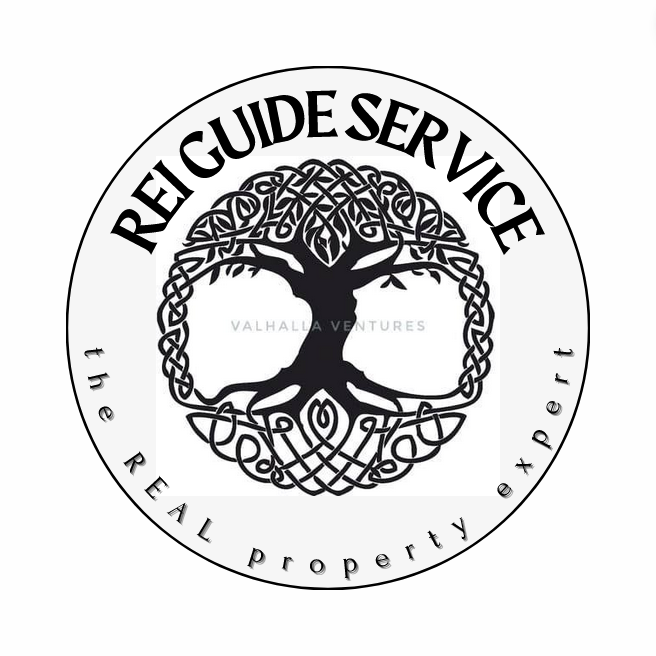How to Make Money From Your Home Without Losing Control of It
Most people never realize their home is sitting on an income stream.
They pay the mortgage, mow the yard, fix the roof, and miss the fact that they’re living inside an asset that could be earning them real, dependable money every single month.
The truth is, you can make money from your home in more ways than one. But doing it safely and profitably means treating your property like a business, not a hobby. That’s where most homeowners get it wrong.
Here’s how to turn unused space into predictable income, and protect yourself, your property, and your peace of mind while doing it.
1. Rent Out a Room (The Right Way)
If you’ve got a spare bedroom that just collects dust or an unused office since remote work became permanent, that’s money sitting idle.
Renting out a room long-term (6 months or more) is one of the easiest ways to make consistent income from your home. But don’t just post on Craigslist and hope for the best, structure it.
Here’s what works:
Use a proper lease agreement (state-specific and signed by both parties).
Include utilities in the rent or charge a flat rate to avoid monthly confusion.
Require first month’s rent and a security deposit before move-in.
Run a basic background and income check, trust, but verify.
The key is not finding “a roommate.” You’re finding a tenant. That small mindset shift changes everything.
2. Short-Term Rentals (Airbnb, VRBO, and Flex-Stay Platforms)
If your home’s in a good location; near hospitals, job centers, or tourist attractions, you might earn double what a traditional tenant would pay.
Short-term rentals are popular because they’re flexible and often highly profitable. But they come with moving parts: guests, cleanings, messages, and constant turnovers.
Make it manageable:
Use smart locks to change access codes after each guest.
Automate pricing with tools like AirDNA or Pricelabs.
Hire a reliable cleaner and treat them like gold, they’re your front-line defense.
Take detailed, date-stamped photos before every stay.
Short-term rentals can feel like a business because they are one. But if you treat them that way, the returns can be impressive, often 2–3x what long-term rent brings in.
3. Convert Unused Space into Income-Producing Units
That garage, attic, or backyard shed might be worth more than you think.
Accessory Dwelling Units (ADUs) and small suite conversions are a powerful way to add long-term value to your property while creating a second income stream.
You don’t have to go big, a detached 400–600 sq. ft. studio can rent for $800–$1,500 per month, depending on your market.
Beyond the rent, that new unit increases your property value and gives you flexibility: housing for family, a private office, or guest lodging that pays for itself.
Just check your local zoning and permitting rules before you start building. Every city has its quirks, and getting it right up front saves time and money later.
4. Storage and Parking Rentals
If you live in a dense or growing area, people will pay good money for secure storage or off-street parking.
Platforms like Neighbor or Spacer make it simple, you list your space, set your price, and they handle payment and insurance.
You can rent:
A garage bay to a contractor or car collector
A section of your yard for boat or RV storage
Even part of a basement for long-term storage
This is one of the easiest “hands-off” ways to earn passive income from your home with almost no tenant wear and tear.
5. Protect Yourself Before You Ever Hand Over the Keys
Let’s be clear: once money changes hands, you’re no longer “helping someone out.” You’re in business.
Here’s what you must have in place:
✔️ Written Agreement:
Spell out rent, due dates, rules, notice periods, and conditions for ending the lease. No handshake deals.
✔️ Documentation:
Take photos and videos of every room before someone moves in. It’s your insurance against “it was already like that.”
✔️ Separate Finances:
Create a separate account for rental income and expenses. It’s cleaner, easier at tax time, and protects you if you ever form an LLC for liability coverage.
✔️ Insurance and Safety:
Require renters insurance. Make sure your own homeowner’s policy allows for tenants or short-term guests. Install smoke detectors, secure locks, and good exterior lighting.
✔️ Privacy Boundaries:
If they’re in your house, make rules for shared spaces, kitchen, laundry, guests, quiet hours. A few clear expectations now prevent bigger issues later.
6. Know the Legal and Tax Side
Every city, HOA, and county plays by its own rulebook. Before you start renting:
Check your zoning laws and short-term rental ordinances.
Confirm HOA bylaws (some prohibit subleasing or short-term rentals).
Get advice from a CPA familiar with real estate income.
If you rent out part of your home, you can often deduct a share of your mortgage interest, insurance, maintenance, and utilities. That’s real money back in your pocket, but only if you do it correctly and document it.
7. Keep It Simple, Keep It Professional
Here’s the real secret: treat your property like an investment, not an experiment.
It doesn’t matter if you’re renting one room or managing a small Airbnb portfolio, the systems are the same:
Clear structure
Consistent communication
Proper documentation
Do those three things and you’ll rarely find yourself dealing with the “nightmare tenant” stories that scare most people away.
The Wrap
You worked hard for your home, now let it work for you.
Every extra room, empty garage, or unused space represents potential income and long-term value. You don’t have to overthink it or overextend yourself. You just have to do it smart.
When structured right, renting part of your home doesn’t take away your peace, it adds to your freedom.

